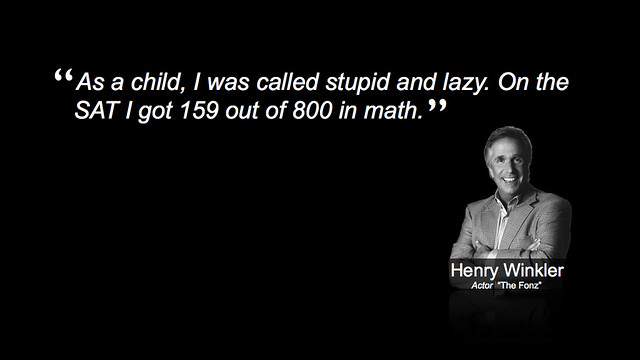Finding peers with a move or starting to homeschool a gifted/2e child
How do you go about finding peers and making friends with a gifted/2e child when you move to a new area or start to homeschool? First, go online and try to find out what homeschool groups are in your area. Many are on Facebook today; though there are still some yahoo groups and homeschool groups with their own websites. Word of mouth is another way to find out about homeschool groups but that can be rather difficult when you either move to a new area or initially start out homeschooling. Ideally, try to meet a fellow homeschooling parent in your area who may be able to point you in the right direction as soon as possible. Try to get the low down on what's around and going on with homeschoolers.
Find out what types of homeschool groups, activities, and/or events are in your area. Think in terms of your specific gifted/2e child/ren and their cognitive, physical, social, and emotional needs as well as their chronological age. Think in terms of academics and non-academics. It's possible to find a friend at an informal swimming group rather than in a competitive math club. Alternatively, it's possible to find a friend or peer at a competitive math club and not at swimming. It depends on the gifted/2e child, the group or activity, and the other children in attendance. And, yes, some homeschool groups, activities, and/or events are based on chronological age and not based on ability. This is something to bear in mind. Sometimes age restrictions are avoidable or able to be bridged by talking to the organizer/s of the homeschool group, activity, and/or event. Other times, age restrictions are inescapable regardless of a child's ability and/or performance elsewhere; some people and places are age sticklers and are not going to change their rules or policies. So you'll have to decide whether it's worth it to wait on these age restrictive groups, activities, and/or events or seek alternative ones for your child's immediate needs based on their chronological age or ones with more flexibility.
Second, discern which homeschool groups, activities, and/or events are structured or lesson-based from the unstructured. If you've got a round peg 2e child, then it's probably not worth beating your head to try to get them to fit into the square hole. Some gifted/2e children thrive with structure and lessons for homeschooled groups and activities. For others, it gives them the hives and they will rebel against them. For these gifted/2e kids, you'll be banging your head with the more structured stuff and will need to find drop-in, informal homeschool groups and activities without too much structure. Bear in mind, as children get older, their needs will change and making friends or finding peers will take greater priority in their lives. A gifted/2e six-year-old's needs are different from a twelve-year-old's, of course.
Third or perhaps earlier (it's not etched in stone here!), take geography into account. Geographical location within a certain area or based on interest/activity can make a difference with transportation, traffic, and getting your gifted/2e child to and from a place. Most major metropolitan areas support homeschooling groups today. Depending on where you live, your transportation, budget, and traffic, you may have a wide range of options for homeschool groups within a 10-mile or 60-mile radius. On the other hand, geography and/or transportation may impose limitations.
Fourth, budget. Yes, if I had a magic wand and oodles of money, then I could forget about this reality and this word! Don't despair. Homeschooling can be done on a shoestring budget. It is possible. Check out what's free, low-cost, pricey, or cost prohibitive. Also, some pricey or cost prohibitive activities or events may have concessions or fees reduced for those on restricted incomes. Public libraries, adult education centers, and other public or non-profit institutions often have activities that are free or for low-cost which may work for an informal homeschool group meetup or a regular structured group.
Fifth, don't see anything that appeals to you or your gifted/2e, consider creating a group or organizing one. Some people are good at organizing. If you are one, don't be shy about putting your ideas forward and trying to start something. You might be pleasantly surprised at the positive responses and reactions from more introverted people who recognize the need but may be reluctant to organize such a homeschool group.
Sixth, let's be honest here. Moving or starting to homeschool can be tough and stressful. Some kids have an easier time with change and socially with making friends, period. Some kids are more flexible and/or resilient than others. Some 2e kids have special needs issues that hinder language and/or social skills. Some gifted kids, or a 2e child, may be highly, exceptionally, or profoundly gifted and really struggle to find true intellectual peers. In that case, you may want to keep the focus on making friends.
Don't throw the towel here! Your child doesn't not necessarily need a gaggle of friends when one or two close friends may suffice. Remember oftentimes it's quality over quantity here. Bear in mind, too, finding peers and making friends are unlikely to happen overnight. It's more likely to take a lot of time, patience, and effort. Your gifted/2e child may also have an easier time making friends than finding a true intellectual peer, which may take considerable sleuthing (or maybe not truly happen until they're an adult).
Depending on your child, their level of giftedness, and where you live, your gifted/2e child may have an easier time if you're able to widen your options. Some have an easier time by drawing on a huge geographical area or a critical mass of homeschoolers. Some families are fortunate to live in areas with lots of gifted/2e kids. Other families may be fortunate to move to those areas where there are lots of gifted/2e kids. On the other hand, finding peers and making friends in towns or cities without any gifted services in public or private schools may be easier -- since many might turn to homeschool as an alternative educational option. Then again, as I've mentioned, there are some gifted/2e kids where it might take until adulthood before they find a true intellectual peer.
Seventh, I've based this blog post on finding peers and making friends with a move or with starting to homeschool in a new area in the physical world, as in face-to-face encounters. Today, Skype, Facetime, social media, and other methods enable gifted/2e kids to find peers and make friends virtually without physically meeting them face-to-face. Gifted Homeschooling Forum (GHF) is a virtual place where a gifted/2e child may find a peer or make a friend. I've been extremely fortunate that my son has found a peer via GHF; others may have as well. So it is possible for gifted/2e kids to find peers and make friends in the virtual world in certain settings without the usual geographical constraints of the physical world and not something to discount.
Eighth, keep plugging away until your gifted/2e child finds some peers and makes friends, in the physical and/or virtual worlds. They may have friends at different groups and/or activities but lack true intellectual peers until adulthood as I've mentioned. If this is the case, don't give up. Keep looking and trying different groups, activities, and/or events until you do....
This is part of the Gifted Homeschooling Forum's blog hop - Gifted Children: The Importance of Finding Intellectual Peers and Community. For more on GHF's blog hops from around the world, see: http://giftedhomeschoolers.org/blogs/. For more of GHF's blog hop topics, see: http://giftedhomeschoolers.org/blogs/blog-hop/.
NOTE:
I am an unpaid blogger (ie. just a homeschooling parent) who uses Blogger but doesn't add, embed, or employ any additional cookies, third party features or anything else!
European Union laws require me to give European Union visitors information about cookies used on my blog. In many cases, these laws also require me to obtain consent.
As a courtesy, I have added a notice on my blog to explain Google's use of certain Blogger and Google cookies, including use of Google Analytics and AdSense cookies.







